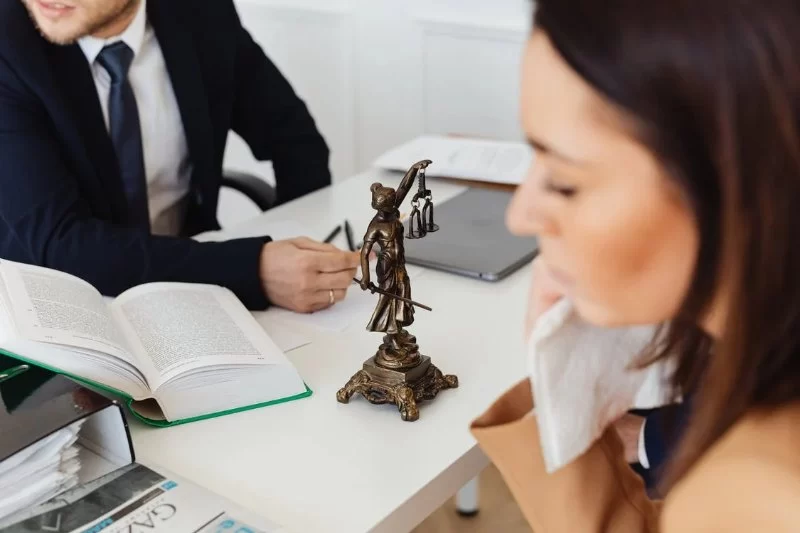
- 1 - Understanding the Nature of a Lawsuit
- 2 - Initial Steps to Take After Being Served
- 3 - Building an Effective Legal Strategy
- 4 - Working Closely with Your Legal Team
- 5 - Real-World Case Study: A Successful Defense Strategy
- 6 - Negotiation and Settlement Tactics
- 7 - Courtroom Preparation and Presentation Tips
- 8 - Expert Insights from ESPLawyers
Understanding the Nature of a Lawsuit
Recognizing the legal implications
When facing a lawsuit, it’s essential to understand that every case represents both a legal and strategic challenge. A lawsuit can arise from contractual disputes, negligence claims, employment issues, or even defamation. Knowing the nature of the case helps you determine the most effective approach for your defense and identify what evidence or documentation will be necessary.
Emotional and practical considerations
Beyond legal implications, lawsuits often bring emotional stress and financial strain. Individuals and businesses alike must balance the psychological burden with practical actions, staying organized and proactive throughout the process. This mindset shift is often the first step toward regaining control and confidence.
Initial Steps to Take After Being Served
1. Do not ignore the lawsuit
Once served, time is critical. Ignoring court summons can lead to default judgment—a scenario where the opposing party wins automatically. Responding promptly is crucial to preserving your rights and options.
2. Contact an attorney immediately
Seek guidance from a qualified legal professional who specializes in your case type. Firms like ESPLawyers offer consultation services that assess your situation and recommend the right course of action. Their legal insight can help prevent costly procedural errors early in the process.
3. Gather and preserve evidence
Collect all relevant documentation—contracts, emails, invoices, and witness statements. The strength of your defense often depends on the clarity and availability of your evidence.
Building an Effective Legal Strategy
Evaluating the claims
The first step in developing a legal strategy is evaluating the claims against you. This involves reviewing the complaint in detail, identifying inaccuracies, and assessing the opposing party’s burden of proof. Lawyers often analyze whether the lawsuit has procedural weaknesses that can be challenged early.
Crafting a response
Your attorney will help file an answer or motion to dismiss based on your situation. The tone and content of this response set the tone for the entire case. A strong, well-structured reply signals that you’re prepared to defend yourself with substance and confidence.
Developing a long-term plan
Effective strategies often include multiple stages—early negotiation, evidence gathering, expert testimony, and trial preparation. Each phase builds on the last to create a comprehensive defense approach designed to achieve the best outcome possible.
Working Closely with Your Legal Team
Open communication is key
Transparency between client and lawyer is vital. Keep your attorney informed about any new developments or communications related to the case. Surprises can weaken your position, while preparation strengthens it.
Trusting expertise while staying involved
While legal professionals manage the technical aspects, your insights as the client remain invaluable. A strong defense is a partnership between informed clients and skilled lawyers. According to ESPLawyers, cases where clients actively collaborate often see better results【ESPLawyers】.
Real-World Case Study: A Successful Defense Strategy
The small business defamation case
A local entrepreneur once faced a damaging defamation lawsuit after a competitor claimed public statements harmed their reputation. Working with a legal team, the defendant gathered online evidence, timestamps, and witness statements to demonstrate factual accuracy. The opposing party eventually withdrew the suit after settlement talks revealed inconsistencies in their claims.
Key takeaways
This example highlights the importance of evidence, documentation, and a composed strategy. Every lawsuit is winnable if the defense rests on solid facts and professional representation.
Negotiation and Settlement Tactics
Understanding when to negotiate
Not every lawsuit needs to go to trial. Sometimes, early settlement saves time, money, and emotional energy. Experienced lawyers can assess whether negotiation serves your interests or if proceeding to court offers better results.
Approaching negotiation strategically
Negotiation isn’t just about compromise—it’s about positioning. Legal teams use evidence and leverage to secure favorable terms. This can include confidentiality agreements, reduced damages, or mutual dismissal of claims. With the guidance of ESPLawyers, clients often find settlements that protect both reputation and finances.
Courtroom Preparation and Presentation Tips
Preparing your case presentation
Presenting in court requires more than legal arguments—it demands clarity, structure, and confidence. Lawyers prepare clients through mock sessions, witness preparation, and evidence organization to ensure readiness.
Maintaining composure in trial
Courtroom pressure can unsettle even the most prepared individuals. Staying composed, listening carefully, and responding respectfully to judges and opposing counsel go a long way in establishing credibility.
Adapting to unexpected developments
Trials often bring surprises—new evidence, shifting testimonies, or unforeseen motions. Skilled legal teams anticipate multiple outcomes and prepare adaptable responses, ensuring that your case remains strong regardless of circumstances.
Expert Insights from ESPLawyers
Balancing defense and resolution
According to ESPLawyers, the best legal strategies combine defense with pragmatism. Sometimes, resolving a case efficiently matters more than winning on paper. Skilled attorneys know when to fight and when to find common ground, helping clients avoid prolonged litigation.
Preventing future lawsuits
Beyond defense, proactive risk management is key. Businesses can prevent future lawsuits by strengthening contracts, ensuring compliance, and keeping transparent communication with clients and employees. ESPLawyers provides tailored consultations to help organizations create legal safeguards and minimize risk exposure【 】.








